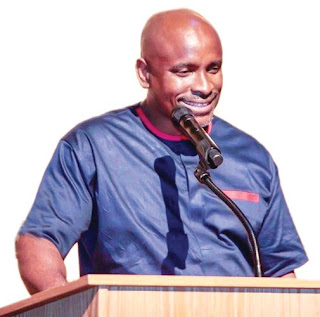After a successful outing last year,
organizers of the African Film Festival,AFF, are warming up to shut
down Dallas, second-largest city in Texas, the United States once
again as this year’s edition of the festival kicks off on Saturday,
June 24, with a workshop on short film.
According to the organizers, the
festival which holds at the Dallas City Performance Hall will be
opened to the general public from Friday, June 30. It will climax on
the 3rd of July with the awards night.
The three-day event showcases films
made by Africans, as well as a few made by non-Africans about issues
important to different regions of the continent.
Last year, Patience Ozokwo a.k.a Mama
G, was one of Nollywood’s stars who was honoured with the 2016
African Film Legend Award at the festival. While it lasted, city
officials hailed the new festival as an expression of the increasing
ethnic and cultural diversity in Texas’ second-largest city.
Regina Hill Onyeibe, the Africa Liaison
for the City of Dallas praised the film festival’s director and
founder, film maker Kelechi Eke, not only for bringing this event to
Dallas, but for providing an audience for African film makers in
diaspora. She said, the festival director had created “a portal in
which other Africans can follow their dreams of telling their
stories.”
Encouraging African film makers to
present a true picture of Africa While explaining the idea behind the
festival, Eke, a multi award-winning film maker said, his idea was to
encourage African film makers and to present a true picture of Africa
and Africans to counter the distorted image often created in
mainstream commercial films.
“We wanted to incorporate our culture
and our films and share it with the rest of the world and why not
Dallas?” he said. Speaking further, Eke said, other Africa film
festivals in the United States either showcase Hollywood films about
Africa or films made by African Americans. This festival, he said, is
centered on Africa, with films that tell deeply rooted cultural
stories, as well as spotlighting problems facing many parts of the
continent. An example of the latter is a documentary from Nigeria
called “Nowhere to Run,” which shows the shocking effects of
environmental damage and global warming on Nigeria.
With stunning cinematography, the film
shows the destruction of coastal mangroves caused by chemical leaks
from oil and gas production, the flooding of some coastal communities
caused by rising sea levels, and the decreased size of Lake Chad
caused largely by overuse of its water for agriculture. Another
documentary, from Sierra Leone, called “Killa Dizeez,” recounts
the toll taken by Ebola during the recent epidemic in Western Africa.
However, about 40 films featured in the festival program last year,
most of which were narrative films concerning such things as domestic
discord, women’s rights and the troubles of migrant workers.
Nigeria was represented at the festival with 12 films as well as
Cameroon which had nine films that were screened. One film, “Ben
and Ara,” tells the story of an agnostic graduate student who falls
in love with a woman who is a devout Muslim. Another, “People at
Sea,” tells the story of a coastal community moved by the
government to an urban center and their struggle to adapt. Ethiopia’s
four films included “Two Zions,” which is about the country’s
connection with Judaism.
Other African nations represented in
the festival include Tanzania, Guinea-Bissau, South Africa, Ghana,
Gambia, Uganda and Burkina Faso. According to Eke, about twenty
countries including Australia and Great Britain have indicated in
their interest in participating in this year’s festival. Some of
the awards categories include, Best Narrative Feature, Best
Documentary Feature, Best Narrative Short, Best Documentary Short,
Best Director, Best Actor, Best Actress, Best Emerging Filmmaker,
Best Cinematography and Best Original Soundtrack. Others are Best
Poster, Best Trailer, Best Costume, Best Screenplay and Best
Indigenous Film





No comments:
Post a Comment